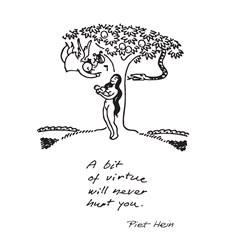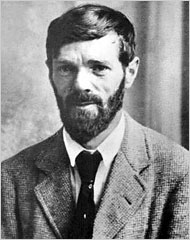Walter Savage Landor (1775 – 1864) was one of the major authors of both the Romantic and the Victorian eras who wrote and published voluminously throughout his long life (he died in his ninetieth year). He was sent away to school at 4 and at 9 went to Rugby School where he excelled in Latin translation and composition and was noted for his rebelliousness. Later he went to Trinity College, Oxford, where he was thought a “mad Jacobin” because he wore unpowdered hair. He was sent down for shooting a fellow student and spent a summer at Tenby in Wales, where he made love to a woman named Nancy Jones, later “banging angrily” out of his father’s house to live with her at Swansea until the birth of their child. In 1796 on the Welsh coast, he met and fell in love with Rose Aylmer, aged 17, and wrote one of his most renowned poems, Rose Aylmer, about her. In 1800 she died of cholera in India at the age of twenty .
In 1807 he met the poet Robert Southey, with whom he remained friends all his life. Later he went to Spain to fight Napoleon and stayed for some months but never saw action. He returned to England, having spent an enormous amount of money and having been made an honorary colonel in the Spanish army. He wrote many poems, based on classical Greek and Roman works, to Sophia Jane Swift, whom he called Ianthe. (See below)
In 1807 Landor bought the ruins of Llanthony Abbey in Wales which he renovated, ruining himself and antagonising his neighbors in the process. Southey urged him to marry, and he married Julia Thuillier, whom he took to Llanthony but they soon left for Italy. From 1821 to 1829 they lived in Florence at the Villa Castiglione and in 1829 moved to the Villa Gherardesca in Fiesole, where he left his wife and children and returned to England. He settled at Bath, where he lived for 20 years.
Between 1824 and 1853 Landor’s Imaginary Conversations appeared and established him as one of the great English men of letters. His close friend Southey died at the beginning of the 1840s. Landor lived on, writing and publishing poetry, prose and drama, in English and in Latin. He was friends with Robert Browning who was deeply influenced by his writing and who said he owed more to Landor than to anyone. He was also friendly with Charles Dickens who named his second son Walter Savage Landor Dickens in his honour and who said of him, “Talking, laughing or snoring, his lungs made the beams of the house shake.” In 1858 he fled back to Florence to avoid a libel action. Disowned by his children, he would have starved but for the kindness of Browning. Landor retained his powers into old age, publishing Last Fruit off an Old Tree in 1853 and Heroic Idyls in 1863. He died in Florence on Sept. 17, 1864.
Landor’s Collected Works was published between 1927 and 1936 in sixteen volumes and that doesn’t include everything he wrote and published. It omits his voluminous Latin writing. Landor was the last great English writer to produce a substantial body of work in that dead language. In late life he once said ‘I am sometimes at a loss for an English word; for a Latin—never!’
The Epigrams of Walter Savage Landor
Some of the epigrams below exceed the twitter limit. But they are worth the exemption. Landor recognised his own proficiency in his poem Trifling With Epigrams:
You ask how I, who could converse
With Pericles, can stoop to worse:
How I, who once had higher aims,
Can trifle so with epigrams.
I would not lose the wise from view,
But would amuse the children too;
Beside, my breath is short and weak,
And few must be the words I speak.
Others have recognised his skill at the genre. Ralph Waldo Emerson, for example, wrote: “Mr. Landor is one of the foremost of that small class who make good in the nineteenth-century the claims of pure literature.” Algernon Charles Swinburne later wrote: “If we except Catullus and Simonides, it might be hard to match and it would be impossible to overmatch the flawless and blameless yet living and breathing beauty of his most perfect elegies, epigrams or epitaphs.” Former U.S. poet laureate Robert Pinsky writing of one of the epigrams below
On love, on grief, on every human thing,
Time sprinkles Lethe’s water with his wing.
spoke of its “mysterious kind of economy,” its “delicacy and finality,” and the manner in which it “refreshes” clichés, accomplishing all this in just fifteen words.
Brief Poems by Walter Savage Landor
Dirce
Stand close around, ye Stygian set,
With Dirce in one boat conveyed!
Or Charon, seeing, may forget
That he is old and she a shade.
***
Dying Speech of an Old Philosopher
I strove with none, for none was worth my strife:
Nature I loved, and, next to Nature, Art:
I warm’d both hands before the fire of Life;
It sinks; and I am ready to depart.
***
On love, on grief, on every human thing,
Time sprinkles Lethe’s water with his wing.
***
Verses Why Burnt
How many verses have I thrown
Into the fire because the one
Peculiar word, the wanted most,
Was irrecoverably lost!
***
Soon, O Ianthe! life is o’er,
And sooner beauty’s heavenly smile:
Grant only (and I ask no more),
Let love remain that little while.
***
One lovely name adorns my song,
And, dwelling in the heart,
Forever falters at the tongue,
And trembles to depart.
***
On His Seventy-Fifth Birthday
I strove with none; for none was worth my strife,
Nature I loved, and next to Nature, Art;
I warmed both hands before the fire of life,
It sinks, and I am ready to depart.
***
On his Eightieth Birthday
To my ninth decade I have tottered on,
And no soft arm bends now my steps to steady;
She, who once led me where she would, is gone,
So when he calls me, Death shall find me ready.
***
Last Lines
Death stands above me, whispering low
I know not what into my ear:
Of his strange language all I know
Is, there is not a word of fear.
***
On Living Too Long
Is it not better at an early hour
In its calm cell to rest the weary head,
While birds are singing and while blooms the bower,
Than sit the fire out and go starv’d to bed?
LINKS
The Poetry Foundation page on Walter Savage Landor.
Robert Pinsky on a Walter Savage Landor epigram.
An article on Landor from the Oxford University Press blog.
















